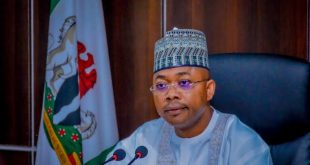Senior Advocates of Nigeria (SANs) have weighed in on the ongoing controversy over the tenure extension of Inspector General of Police (IGP) Kayode Egbetokun, stating that the extension is legal and in accordance with the law.
This comes amid heated debates over his retirement age after he turned 60.
On Friday, the Police Service Commission approved the retirement of senior police officers who have either reached the age of 60 or completed 35 years in service.
However, Egbetokun, who was expected to retire on September 4, 2024, after reaching 60, was granted a four-year tenure extension by President Bola Tinubu.
This extension followed the National Assembly’s amendment of the law governing appointments to the IGP’s office.
In July 2024, the Senate passed the Police Act Amendment Bill, which ensured that an IGP could serve a four-year tenure regardless of age.
While this amendment allowed for Egbetokun’s extended stay, it has sparked ongoing legal debates about the legality of his continued tenure.
Human rights activist Omoyele Sowore, who has been vocal in criticising Egbetokun’s tenure, insists that the IGP must vacate the office.
Sowore, who is currently facing trial for calling Egbetokun an “illegal IGP,” has maintained that the IGP’s stay in office is unlawful.
However, Senior Advocate of Nigeria Kunle Adegoke disagrees with Sowore’s stance. He stated that while the matter may not clearly violate any constitutional provision, its legality ultimately rests on judicial interpretation.
“Where a specific tenure is provided by law, the appointing authority may not have the power to extend it, unless a second term is allowed. However, if the law doesn’t prohibit reappointment or tenure elongation, the general rule is that what is forbidden is permitted,” Adegoke explained.
Adegoke also pointed out that the regulations governing the police, military, and paramilitary organisations are distinct from those of the civil service.
“The police and military have special rules guiding their appointments and tenures. They are not bound by the general civil service regulations,” he said.
Adegoke further emphasized that taking the matter to court could establish a clear legal precedent on the issue.
Former Chairman of the Section of Public Interest and Development Law of the Nigerian Bar Association (NBA), Monday Ubani, SAN, also weighed in, asserting that the IGP’s tenure extension was supported by an Act of Parliament, which overrides civil service rules.
“The Police Act itself defines the powers of the IGP and his tenure. The amendment states that the four-year tenure runs irrespective of age. So, even if you’ve attained 60, the law allows for the extension,” Ubani stated.
Ubani added that in any legal conflict between civil service rules and an Act of Parliament, the latter takes precedence. He also called for a more open public discourse on the matter, emphasising that expressing differing views should be encouraged.
“I wouldn’t want a situation where someone like Sowore is arrested for expressing his opinion. Just because he calls the IGP ‘illegal’ doesn’t invalidate the law. This is democracy,” Ubani noted.
Senior lawyer Ifeday Adedipe, SAN, also supported the legality of Egbetokun’s tenure extension.
He referenced a law signed by former President Muhammadu Buhari in 2020, which, according to Adedipe, the current administration is correctly applying.
“As long as the law was properly passed by the National Assembly and assented to by the executive, the extension is valid,” he said.
Adedipe further argued that frequent changes in leadership disrupt the continuity and efficiency of the police force.
“The high turnover of Inspectors General of Police—one year, two and a half years—weakens the force. A police force can’t develop a strong culture if leadership is constantly changing,” he said, citing the example of long-serving judicial and executive leadership in countries like the United States.
Adedipe concluded by urging the government to prioritise institutional stability, suggesting that IGPs should serve longer terms for better leadership and assessment.
“If someone is appointed IGP, let them serve for five or six years. This way, we can properly assess their leadership rather than constantly replacing them to satisfy political interests,” he said.
The debate over Egbetokun’s tenure extension continues, with legal experts and public figures offering differing perspectives on its implications.



